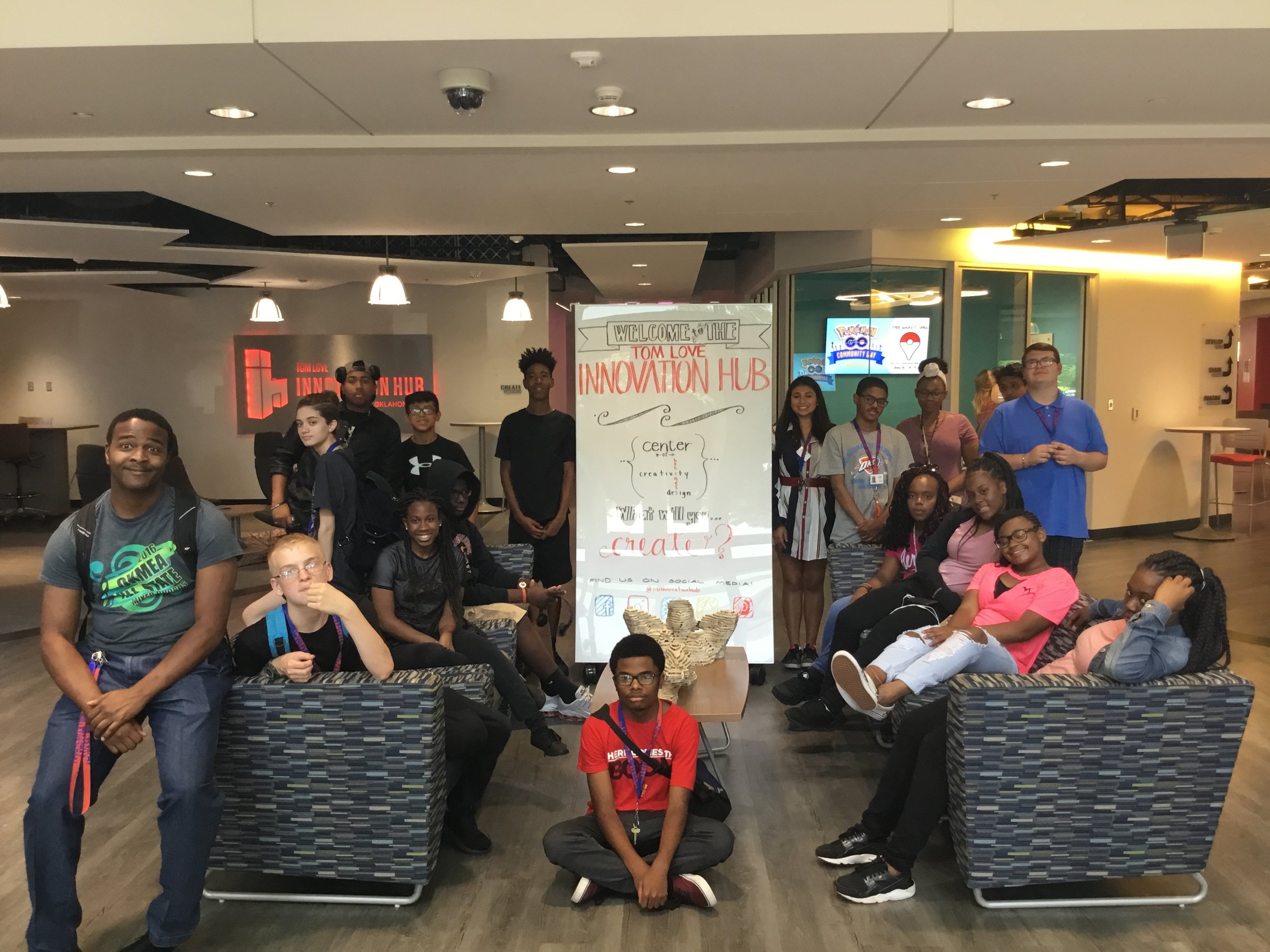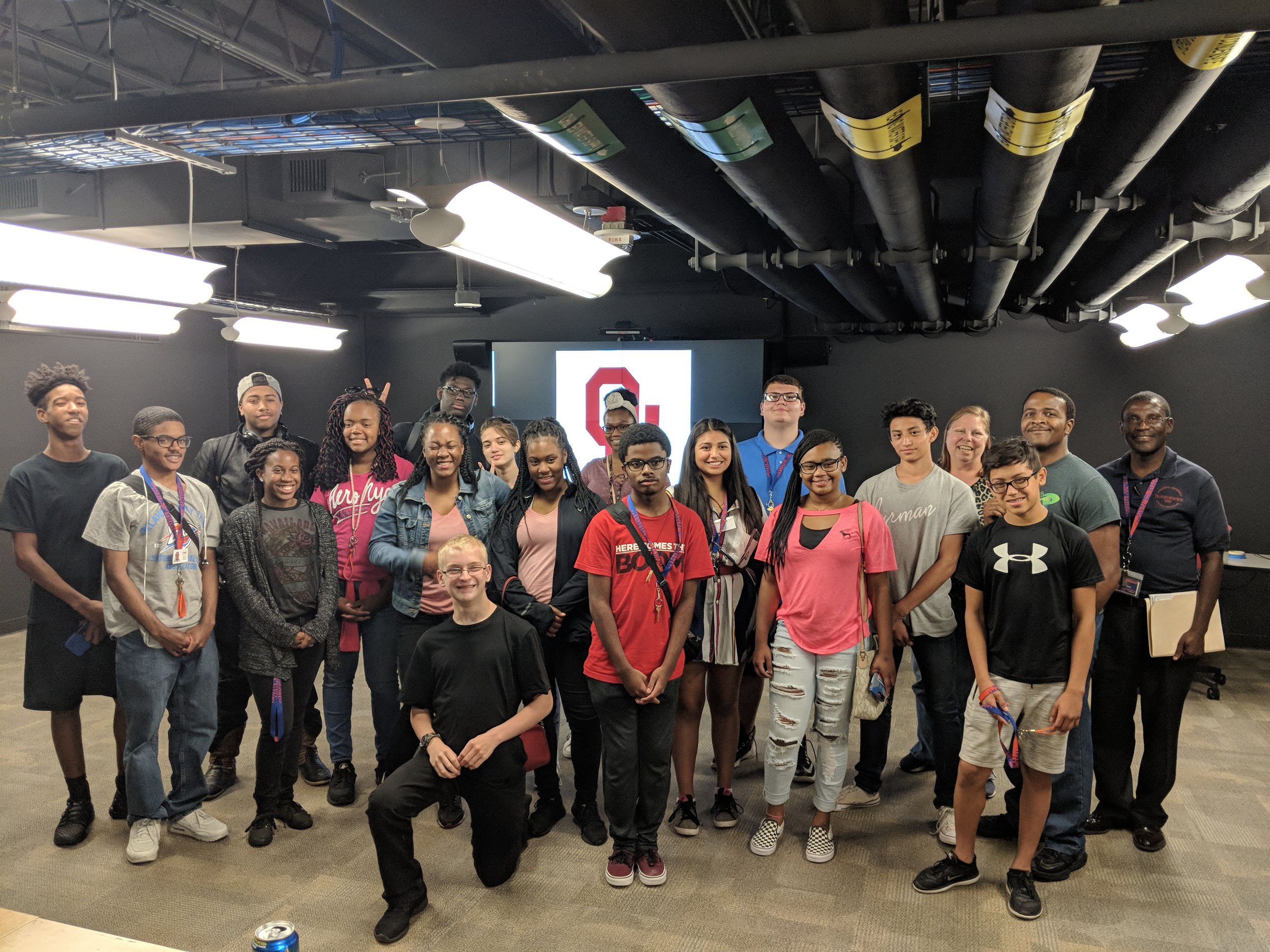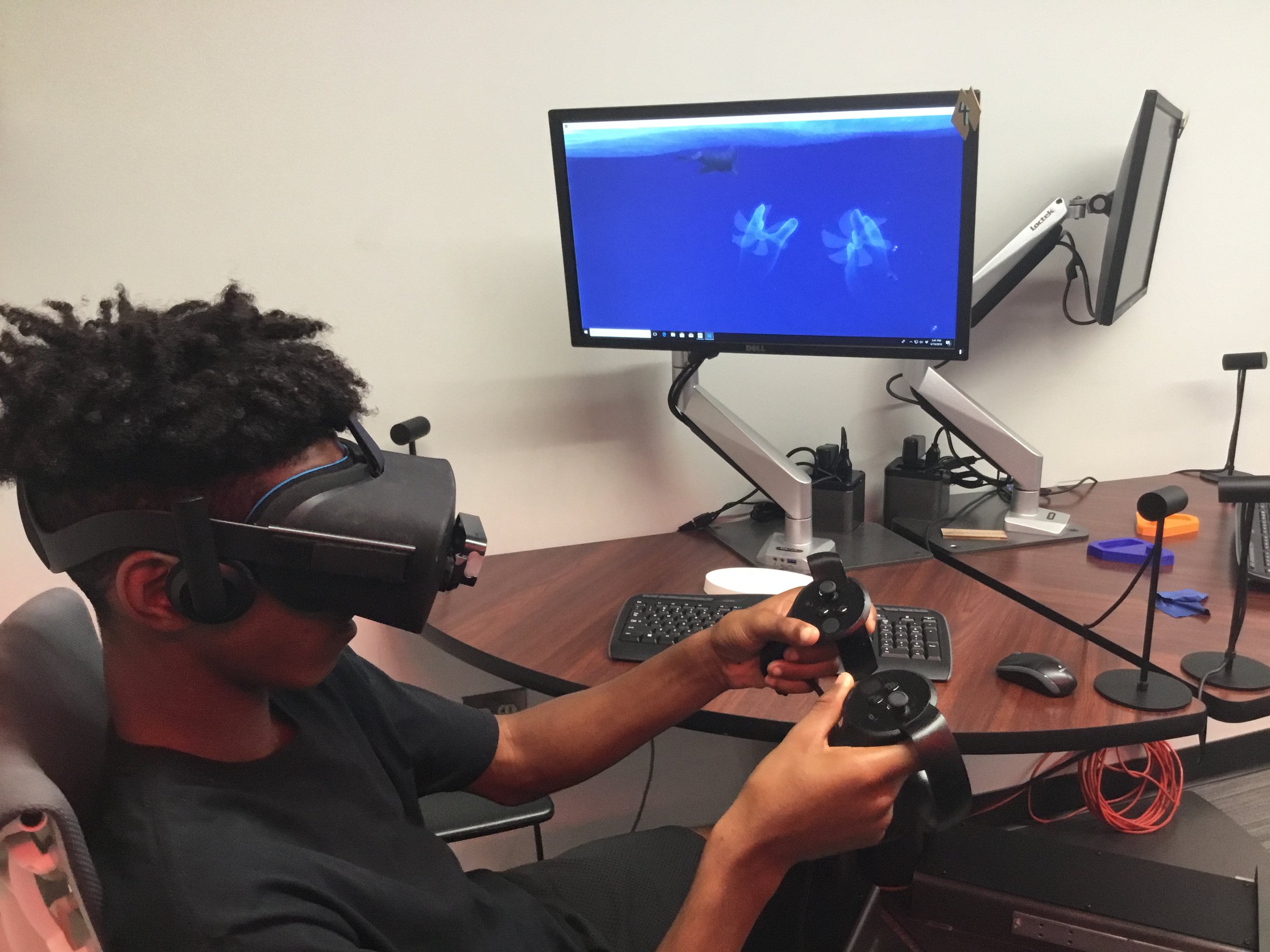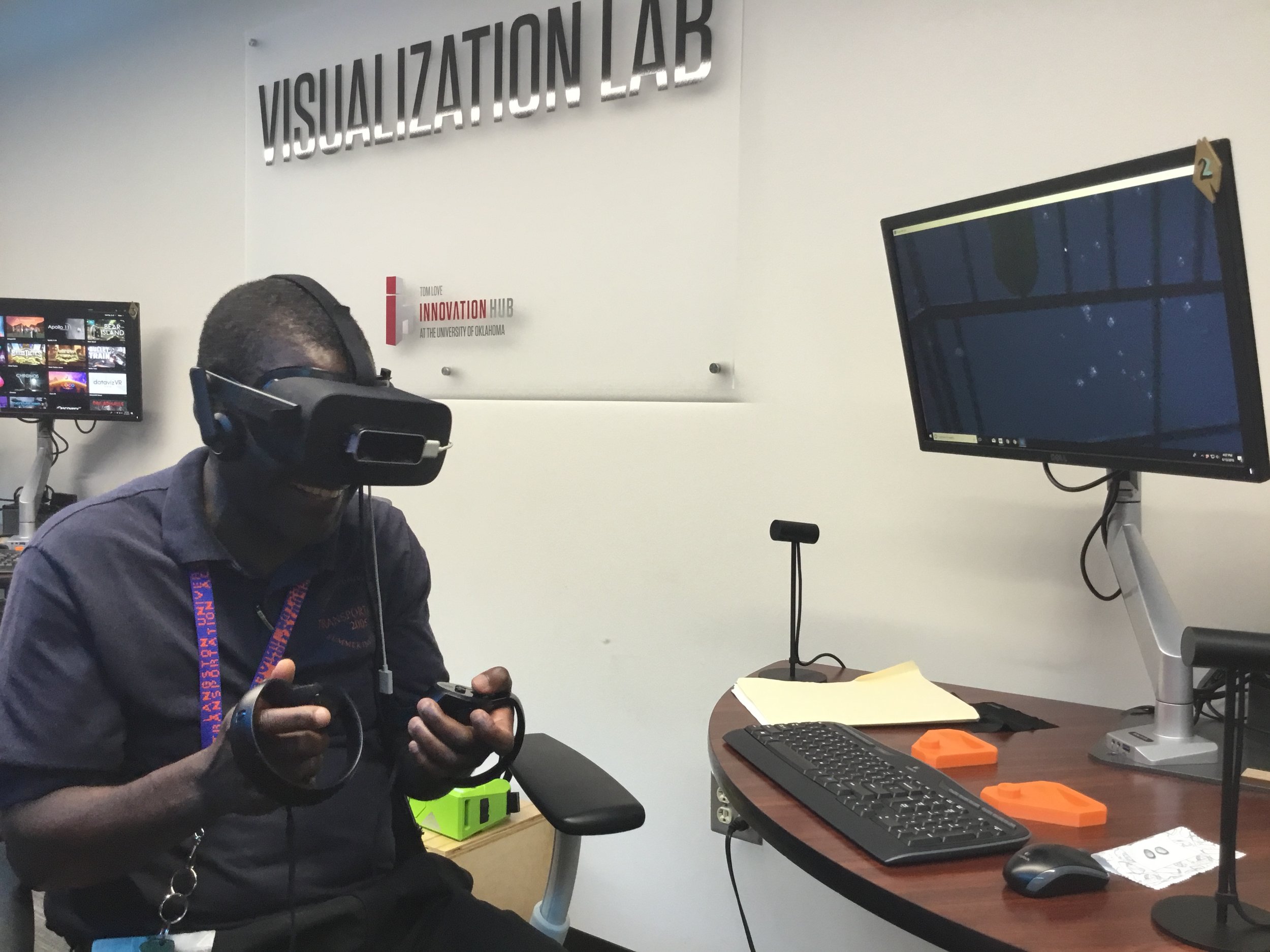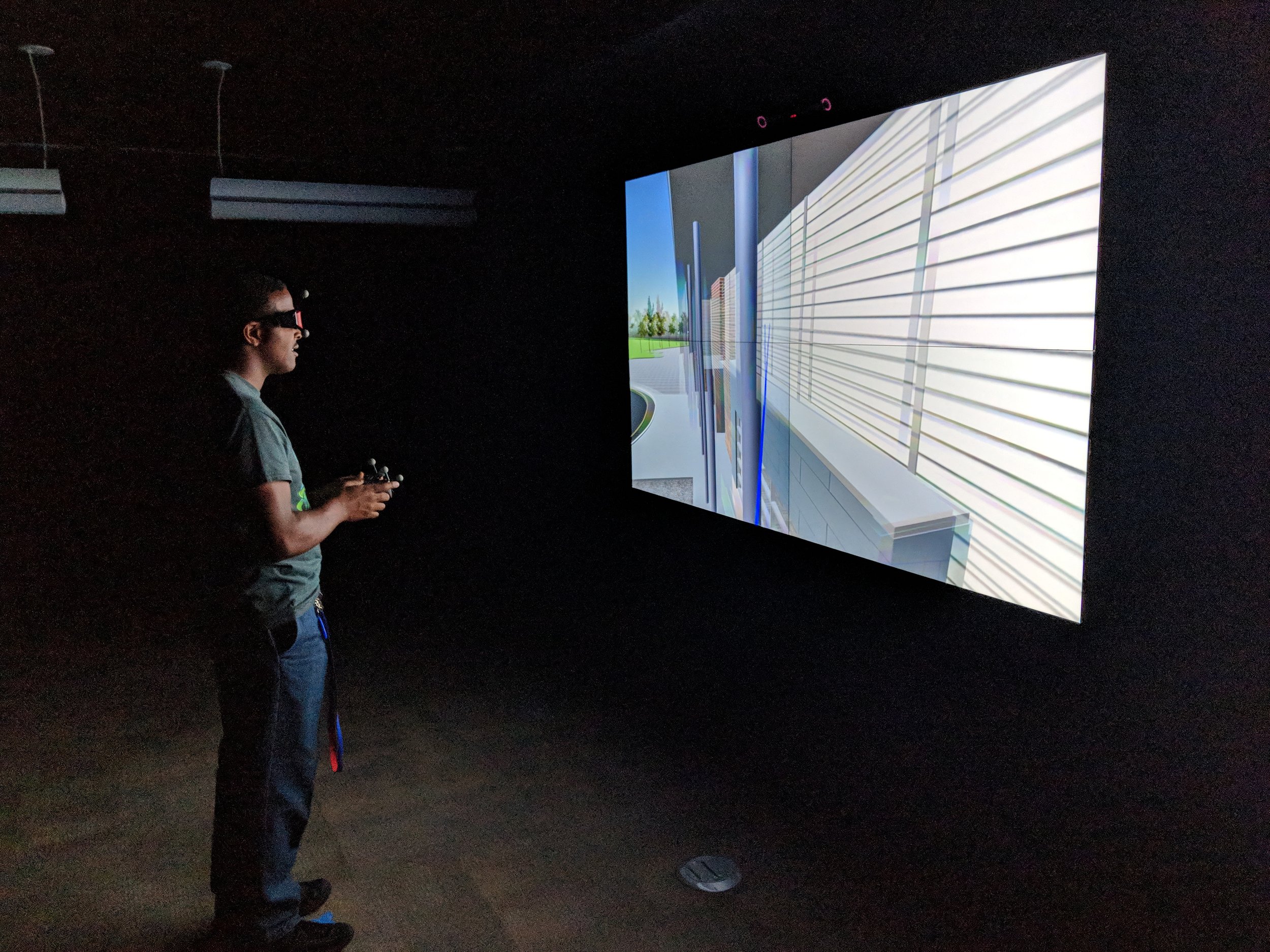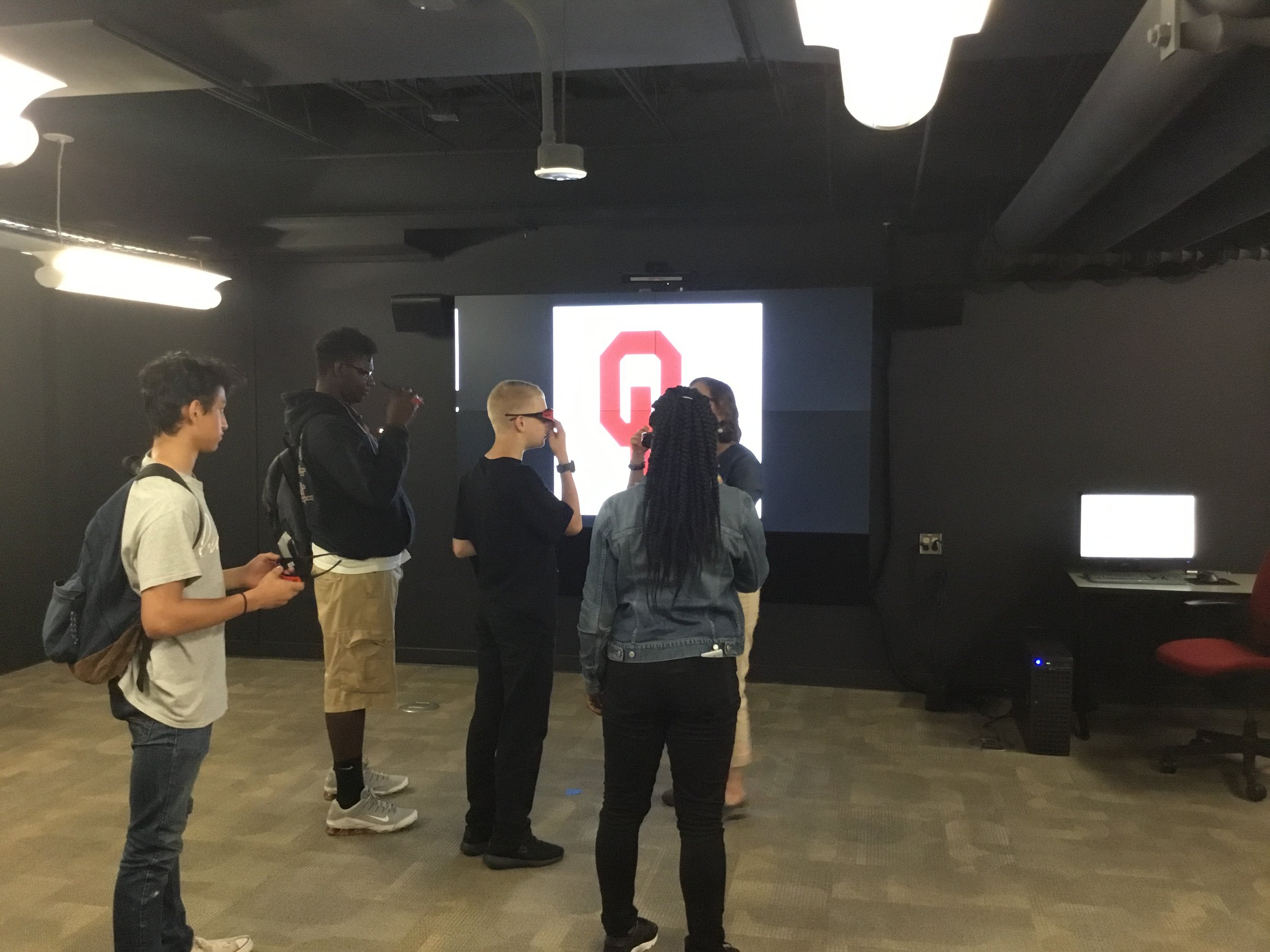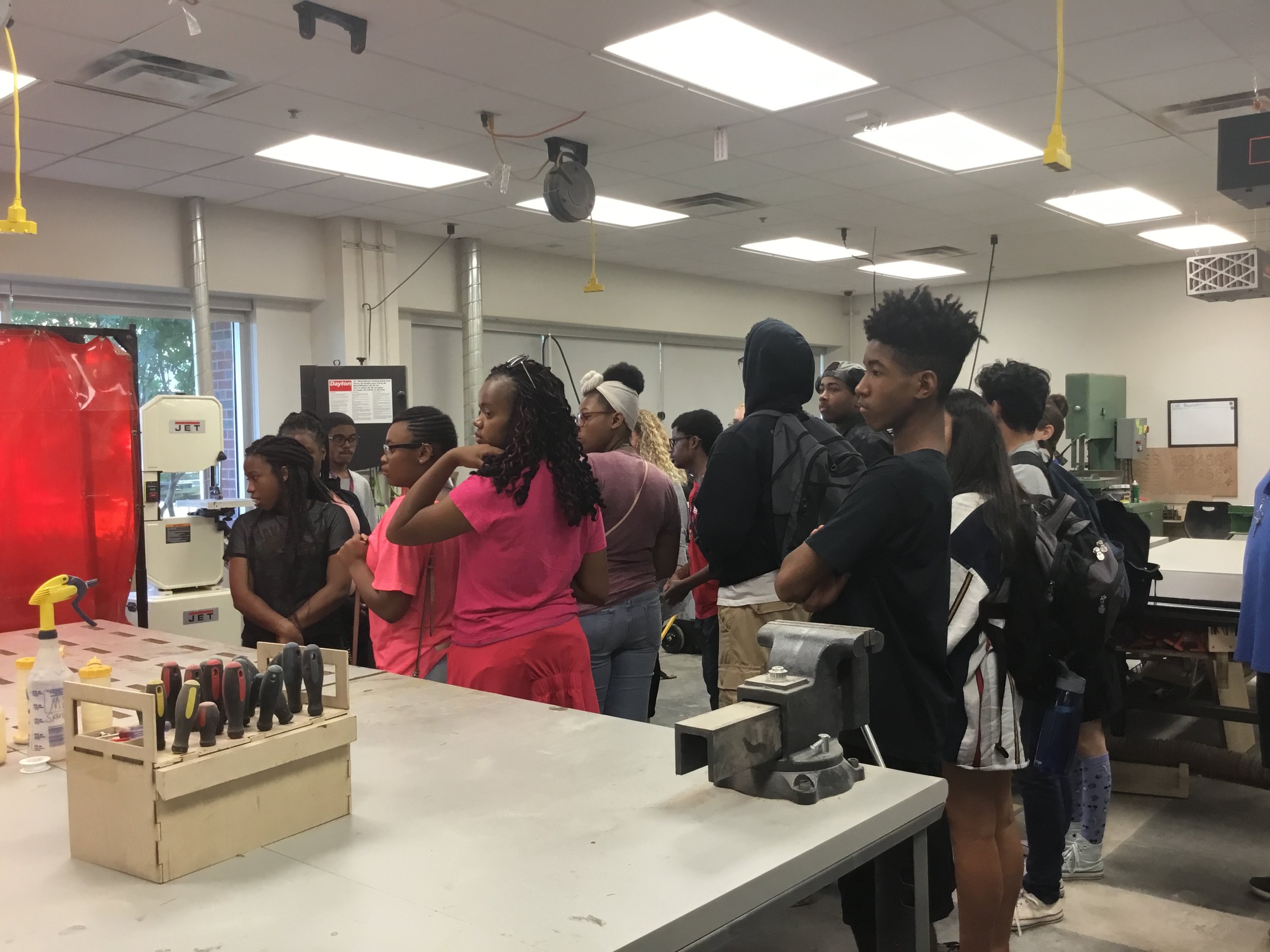SUMMER CAMPS
2018 LANGSTON UNIVERSITY TRANSPORTATION ACADEMY (LUTA)
Langston University hosts the Langston University Transportation Academy (LUTA) annually. The primary objective is to attract a diversified group of young people into the transportation workforce. Few minorities enter transportation professions. To increase diversity of future transportation professionals in the United States, it is necessary to deliver intervention efforts that are geared toward encouraging underrepresented students to take science, technology, engineering and mathematics academic courses. It is advantageous for young people to be recruited early in secondary school and exposed to career choices and opportunities in the transportation industry. Therefore, the academy has three related objectives: (1) to create awareness of and stimulate interest in career opportunities in the transportation industry for secondary school students; (2) to attract a broad and diverse selection of bright minds, and acquaint and stimulate them with the various aspects of the transportation industry; and (3) to increase the number of students who choose careers in the transportation industry.
LUTA curriculum generally involves learning about land, air, water, and space transportation, and how these modes of transportation interface with each other. Also, students hone their computer, math, chemistry, and communication skills. Promoting fast, smooth, and safe transportation is one of the underlying themes of the Langston University Transportation Academy. During the recent LUTA, students visited the Oklahoma Department of Transportation (ODOT), where they learned about bridge design, roadway design and construction, and testing of concrete and reinforcing steel used in road construction (Figure 2). Students also learned about the planning process in road and bridge construction and about the importance of science in constructing safe and durable roads and bridges.
Students kept journals of what they learned each day. At the end of the program, students were asked to write an essay on what they expected to learn, what they actually learned, and what they thought they would do in the future as a result of being part of the Academy. Responses helped to validate the LUTA strategy.
2018 LUTA Summer Experience
Overview
Langston University conducted its Transportation Academy (academy) from June 3 to June 15, 2018. Dr. D. Chongo Mundende (director of LUTA and an associate director of SPTC) directed the program. Fourteen students completed the academy learning about careers in land, air, water, and space transportation through classroom lectures, field trips, and hands-on activities. The students honed their skills in leadership, team building, communications, mathematics, science, computer, and sports and recreation.
The Transportation Academy recruited ten African Americans, three Caucasian Americans, and one Latino/Hispanic American (Figure 1), consisting of eight males and six females. . They represented twelve different high schools: Astec Charter School, Capitol Hill, Classen School of advanced Studies, Coahoma County, Douglas, Edmond Santa Fe, Langston Hughes Academy, Justice Alma Academy, Union 9th Grade Center, and Will Rogers College. They came from five cities: Edmond, Glenpool, Oklahoma City, Sapulpa, and Tulsa.
Land Transportation: Participants learned about careers in land transportation through classroom presentations, field trips and hands-on activities. Field trips included a visit to the City of Oklahoma City Planning Department, where they learned about the planning process, traffic control, bicycle lanes, Embark (public transportation), upcoming trolley system, and river cruises. Other activities included a visit to the Southern Plains Transportation Center where interacted with the staff at the Ken Robson BIM+VIZ Lab and the Tom Love Innovation Hub. The participants learned about defensive driving, dangers of driving under the influence of alcohol and illegal drugs, and recognizing hazards when driving.
Participants designed and constructed bridges using Popsicle sticks and glue. The participants were first put into groups of three and asked to design the bridge, which was at least 18 inches long, estimate the number of sticks they needed, and then construct the bridge they had designed. They had a week to design and construct the bridges. The designs were compared to the final products. Some of the bridges were different from their designs.
In science classes, participants learned about the concepts of motion, speed, and distance, and how these concepts were related to careers in transportation.
Water Transportation: Water transportation is limited in Oklahoma; however, students spent time learning about the transportation of goods and services via water through the hands-on exercises in the science classes, as well as through a field trip to the Port of Catoosa, where they learned about the McClellan Kerr navigation channel. They also learned about the Oklahoma City River Cruises. In class they constructed boats and sank them to check on who constructed a sturdy boat, judged by the heaviest weight.
Air and Space Transportation: Participants learned about air and space transportation at the Oklahoma City Metro Aviation Career Center, where they heard about the history of aviation and the various career opportunities aviation mechanics. They had a chance to climb into the cockpit of the planes the students at the Aviation Center use to learn their craft.
Meet the Students
Wesley Bingham: I honestly came to have fun; but now I know a lot about transportation. I worked hard and made friends. I will apply what I learned in my adulthood.
Wayne Ceasar: I learned many life skills including waking up in the morning (which is very hard for me). Ms. Thompson in science class helped me in understanding what we were doing. I learned about many jobs in transportation.
Kevair Davis: I expected to see how it felt like living at college and learning about transportation. This program has helped me learn about all types of transportation, including the water system at the Port of Catoosa. I also learned that time management is very important in college. I have learned things I never knew about transportation.
Louriana Davis: After all, as a STEM course, participants were at vastly different levels. Computer classes started with bare bones basics for those who had no concept of operating Microsoft products. Science would be far more hands on than simply memorizing periodic tables or something like that. The leadership opportunities presented themselves much more subtly than I had expected, in paying attention and communicating clearly, including nonverbally. Taking notes and asking questions without someone misconstruing the intended meaning. Taking responsibility for one’s own actions even in simple things like living space maintenance and living alongside peers. It gave a feel for life in a university at the site of one, and even just brushing up on basics seemed beneficial. In traveling we learned the benefits and extent of the vast transportation industry, its history, and its impact around the world; even far beyond this world. The opportunities were more different than my expectations. My expectations were exceeded. All of us have been affected positively by this experience, and it is truly a great opportunity we can go forward to put to use.
Jasmine Gracey: The Transportation Academy is a program that will definitely help me in the future with my aspiration of becoming a lawyer, may be even a transportation lawyer. I learned that there are more job opportunities in land, water, air, and space transportation.
Jaylen Natt: I learned that water is one of the biggest modes of transportation in Oklahoma – the channel starts in Catoosa and goes all the way to Louisiana to confluence with the Mississippi River. I also appreciated President Kent Smith Jr. when he said, “What you do when you have little, you will do when you have a lot.” This told me to humble myself when I have nothing or when I have a lot. I should not forget where I came from.
Autum Osborne: I expected to learn new things about transportation: what it is and how it works; and how to work with others. I have learned about the different modes of transportation: land, air, water, and space. In communications, I learned aspects of public speaking, such as be prepared, use good posture, breathe, relax, and pace yourself.
I am going to tell others about what I learned. I am going to use the things I learned in my life, and I am going to practice some of the things.
Summer Osborne: When I came to the academy, I did not think I was going to learn about math, science, or computers, because it is called Transportation Academy, but I have learned so much, had fun, and met some good, new friends.
I have learned that you cannot let people tell you what to do or let them determine what you can do. I have learned more about myself as a person, more about what I want to do, and what I can do. I also learned how transportation can get me from point A to point B. I learned about the various modes of transportation.
Grayson Pasini: To be honest, I wanted to learn how college life worked. I wanted to see the rooms in which we slept and how staying at college felt like. I want to go to college that gives an excellent education, hopefully cheaply. I really like Langston University for preparing me for life to go to college, get a good job, or something to help me in the future.
Jeramy Perez: To conclude this essay, this Academy is the most useful, informative Summer Camp I’ve ever attended. It’s an academy that will actually help me in the future. It brings me motivation and it will continue to motivate me in the future. Good memories and the cool projects will come to my mind when I look back to this academy. I am so grateful for this awesome opportunity and I hope that one day I’ll be able to play it back. I will use my knowledge gained from this academy and with the help of God, go to the University of Michigan and pass my classes. Thank you for this amazing experience and thank you for the awesome teachers, food, dorms and the great counselors. To summarize, the President of Langston explained to us about what attitude you need to have to succeed and he advised us to “Have supreme confidence in yourself.”
Donovan Peterson: In Defensive Driving class, I learned a lot about how to drive safely. I will use this class to be a safe driver in the future. When we met the police officers in Midwest City, I basically learned not to drink and do drugs while driving.
Alisaac St. Aimie: The President had these words for us, “Be honest. Be open. Be present.” That is exactly what I am going to do. Having experienced a college environment was great. I now have to decide if I want to stay on campus or off campus. One of the deans said, “You may only have certain classes three days a week.” That’s an upgrade because in middle and high school you have classes beginning at 7:00 am and finishing at 3 in the afternoon. Both the Dean and the President advised us to “Plan your time wisely.” I will take that advice to heart because time is everything in life, not just college. I learned how to live with someone that I never knew or met before. Last but not least, the food was awesome. It was all one could eat. How could you beat that?
Jan’Nise Thomas: In these past two weeks, I have learned exceedingly more than I hoped for. Being from a small town, I never realized how immense transportation actually is. When we traveled to the Port of Catoosa, I discovered the vast world of water transportation. At the port, I learned that barges traverse over 25,000 miles carrying goods in the United States. At the Oklahoma City Metro Aviation Career Center, I had an opportunity to see how aviation mechanics is important in travel. Seeing the inside of a plain gave me a new appreciation for their sleek and intricate design.

